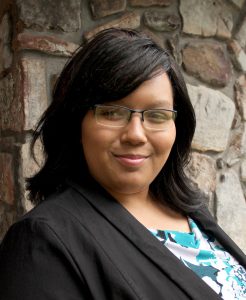by Sacha Mankins

The Mosaic Templars Cultural Center of Little Rock, Arkansas, celebrates the history and culture of Black Arkansans, with special emphasis on African-American fraternal organizations and black businesses. I recently spoke over the phone with the Cultural Center’s director, Christina Shutt, a graduate of the Simmons Dual Degree program in Library Science/Archives and History. Christina caught me up on the history of the institution, its current projects, and the many ways in which the Mosaic Templars Cultural Center is a pioneer of cultural heritage outreach in the state of Arkansas.
The Mosaic Templars Cultural Center is housed in a building not far from downtown Little Rock, off Interstate 630. Christina explained to me that during the period of white flight in the 1960s, this highway was put in to help suburban white families get into the city without passing through black neighborhoods. The highway divided the museum’s building, formerly home to an African-American burial insurance association, from the bulk of the black business and residential community. The building lay unused until the 1990s, when it was scheduled for demolition. Concerned members of the community successfully petitioned the state to preserve it as cultural heritage landmark instead, leading to the creation of the Cultural Center as a legislated (state-owned) museum. After a 2005 fire that destroyed the original building, the museum was rebuilt and opened to the public in 2008.
As a museum, the Cultural Center mainly serves the black community of Arkansas and those locals who want to learn more about African-American history, but it also hosts family reunions for many black families who no longer live in the state, and has received visitors from all over the globe, especially tourists from Africa. The consul-general of Hong Kong even visited for a Martin Luther King day event while staying with the state governor! Although visitors come from anywhere in the world, Christina told me that many of those who visit are people who have roots in the community, who might catch a glimpse of their own parents or grandparents in the photos on the walls.
Christina has been director of the Cultural Center for about a year and a half, and in that time the museum has become a leader in cultural heritage outreach not just for the African-American community of Little Rock, but for the cultural heritage community of Arkansas in general. The Cultural Center hosts events concerts and other artistic events at its building, and runs educational programs on the black culture of Arkansas. As you might expect, for Black History Month in February the schedule is absolutely packed, with concerts, new exhibits, lunch lectures, and a special tour schedule.
I asked Christina what projects she’s most excited about, and she told me about two in particular, #inclusiveArkansas and “Arkansas Made, Black Crafted.” Under the project #inclusiveArkansas, the museum is currently working to make their events more accessible by providing earmuffs and weighted blankets for autistic children, magnified exhibit sheets for visually impaired guests and so forth. Not only is Christina happy with the way this project is going at her museum, she also provides workshops to other cultural heritage institutions on outreach and inclusion for patrons with disabilities.
The other project Christina described to me is the Cultural Center’s effort to work with and support black business owners in the community, “Arkansas Made, Black Crafted.” Last December, the Cultural Center and AMBC hosted a fashion show put together by local designer Korto Momolu (who has appeared on Project Runway and its spinoff series, after coming in as first runner-up on the show’s fifth season). Momolu’s work is also sold in the Cultural Center’s museum store. Christina has been sharing her experiences of this form of outreach with other cultural heritage professionals at museum conferences, explaining to other museums how they can integrate local business and local artists into their museum stores.
These two projects have made the Mosaic Templars Cultural Center into one of Arkansas’s most forward-thinking cultural heritage institutions. Alongside their other day-to-day projects they are working, as many others are, to make more of their collections available online, as well as pursuing accreditation from the American Alliance of Museums. Christina is clearly the kind of energetic, engaging personality a small institution needs to keep up with so many projects. If I’m ever in Little Rock, I’m definitely going to stop by for a visit.
Take a Virtual Tour of the Mosaic Templars Cultural Center
